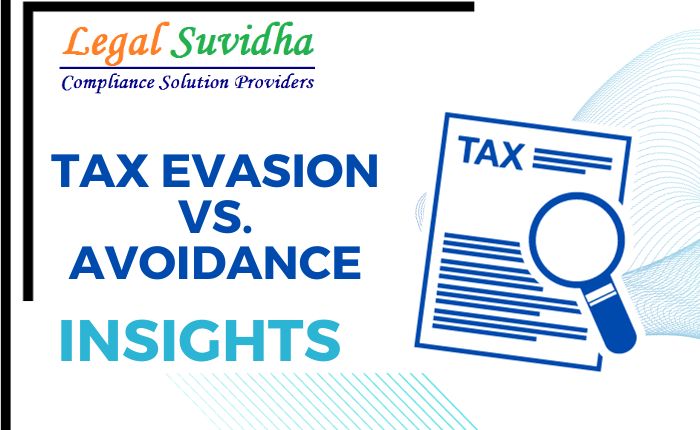Tax avoidance and tax evasion both have to do with how people handle their taxes, but they’re quite different when it comes to whether they follow the law and what they intend to do.
Tax Avoidance is when people use legal methods or tricks to pay less in taxes. It’s like finding ways in the rules to reduce how much you owe. For example, a business owner might claim legitimate business expenses, such as money spent on office supplies or travel, to lower how much they have to pay in taxes. They might also organize their business in a way that lets them take advantage of tax benefits or lower tax rates. Tax avoidance is okay because it follows the rules.
Tax Evasion, on the other hand, is when people deliberately break the law to avoid paying the taxes they owe. It’s a serious crime that can lead to big fines and even going to jail. An example of tax evasion is if someone gets income from a job or business but doesn’t report some of it on their tax return. They might also hide money in secret accounts or make up false records to make it look like they earned less than they really did. This way, they don’t pay the right amount of taxes, and that’s illegal.
It’s important to understand the difference between these two because they have very different consequences. Here are some things that can happen:
1. Tax Evasion Criminal Charges: If you commit tax evasion, you can be taken to court, fined a lot of money, and even put in jail.
2. Civil Penalties: Taxpayers who are caught evading taxes may have to pay extra fines and interest on the taxes they didn’t pay.
3. Paying Back Taxes: If you’re caught evading taxes, you’ll have to pay all the taxes you owe, plus the fines and interest that have piled up.
4. Harm to Your Reputation: Tax evasion can ruin your reputation. People and businesses won’t trust you, and banks might not want to work with you.
5. More Scrutiny for Tax Avoidance: If you use tricky methods to avoid taxes, tax authorities might start looking more closely at your finances, which can be a hassle.
6. Losing Deductions: If the tax authorities think your tax avoidance methods aren’t following the rules, they might say you can’t use certain deductions or credits you claimed, which means you’ll have to pay more in taxes.
7. Tax Laws Changing: If the government sees people using tax avoidance tricks too much, they might change the rules to stop it, which can affect your taxes.
8. Public and Media Opinion: Even if it’s legal, really aggressive tax avoidance can make people angry, and the media might criticize you, which can hurt your business’s reputation.
In short, tax evasion is against the law and has severe consequences, while tax avoidance is legal but can still get you in trouble if you don’t follow the rules carefully. So, it’s essential to be aware of these differences and make sure you’re following the tax laws correctly while trying to pay less in taxes using legal methods.
If You have any queries then connect with us at [email protected] or [email protected] & Contact us & stay updated with our latest blogs & articles










